
African Development Bank
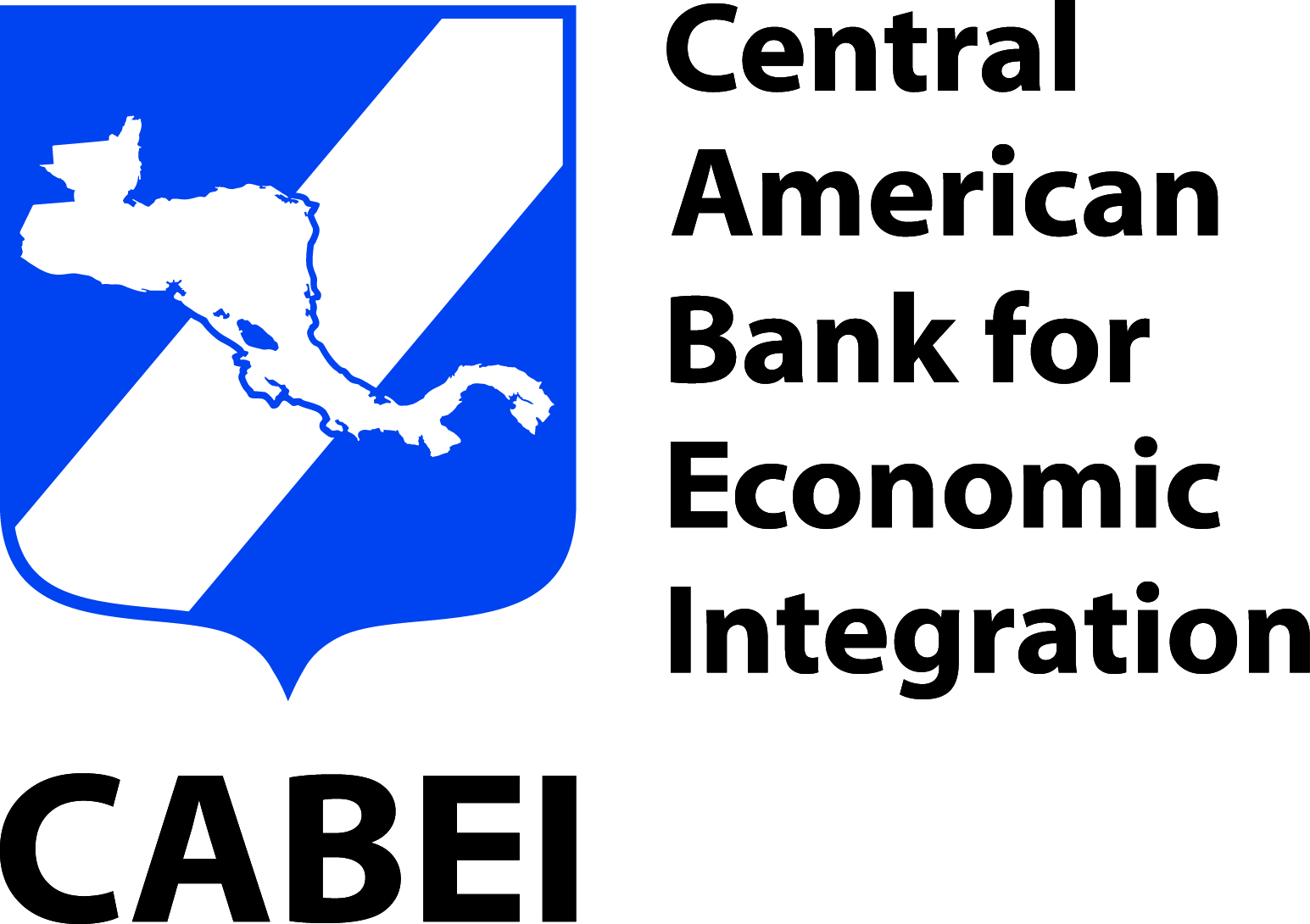
| SECTOR | Supranational |
| RATINGS | AA/Aa3 |
| RATING OUTLOOK | Both stable |
| PAID-IN CAPITAL (31 Dec 2019) | US$1.1BN |
| CALLABLE CAPITAL (31 Dec 2019) | US$3.7BN |
| FUNDING VOLUME 2019/2020 | US$1.1BN/US$1.5BN |
| RISK WEIGHT, LCR LEVEL, SOLVENCY II | 20%, LCR 3.88x, 36% |
| REPO ELIGIBILITY | None |
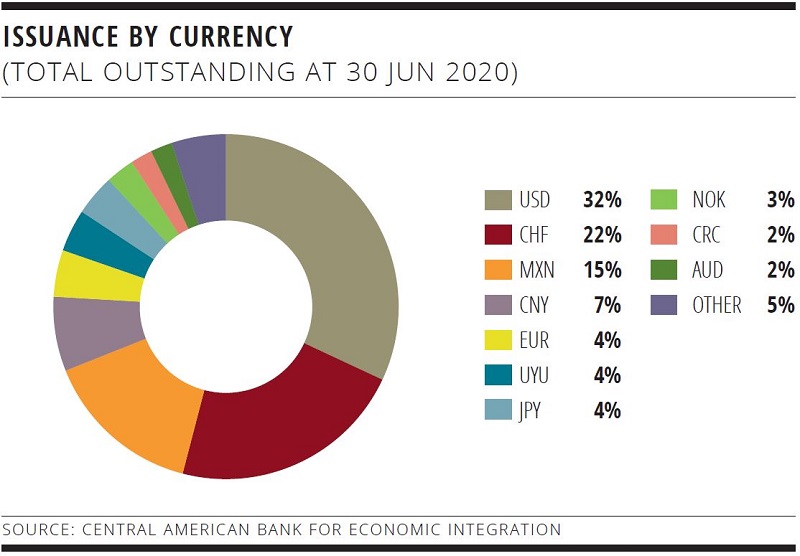
About Central American Bank for Economic Integration
Central American Bank for Economic Integration (CABEI) is the largest multilateral lender in Central America, with close to 50% share of total disbursements in the region. CABEI was established in 1960 and is headquartered in Honduraws. Its mission is to promote the economic integration and the balanced economic and social development of the Central-American region, which includes the founding members and non-founding regional members, attending and aligning itself with the interests of all its shareholders.
To this end, the bank makes loans and provides technical assistance to entities in the region’s member countries. CABEI’s main focus has been in public-sector infrastructure projects. The 2020-24 strategy will also incorporate an important emphasis on projects with regional scope.
In April 2020, CABEI implemented a capitalisation process, the second such process in less than 10 years, where the bank’s capital structure grew to US$7 billion from US$5 billion amid the COVID-19 crisis. This demonstrates strong shareholder support.
SUSTAINABILITY OBJECTIVES OF GSS BOND PROGRAMME
Sustainable land use, renewable energy, sustainable water management, and clean transport.
| GSS BOND PROGRAMMES | Green Bond Programme |
|
REFERENCE TAXONOMY FOR THE USE OF PROCEEDS |
Green Bond Principles |
| FRAMEWORKS WITH WHICH THE GSS BOND PROGRAMMES ARE ALIGNED | Green Bond Principles |
| EXTERNAL REVIEW PROVIDERS | Sustainalytics (Green Bond Framework) |
PUBLIC ISSUER ESG RATINGS/SCORES
CABEI is not aware of any ESG rating. Unsolicited ratings may have been attributed.
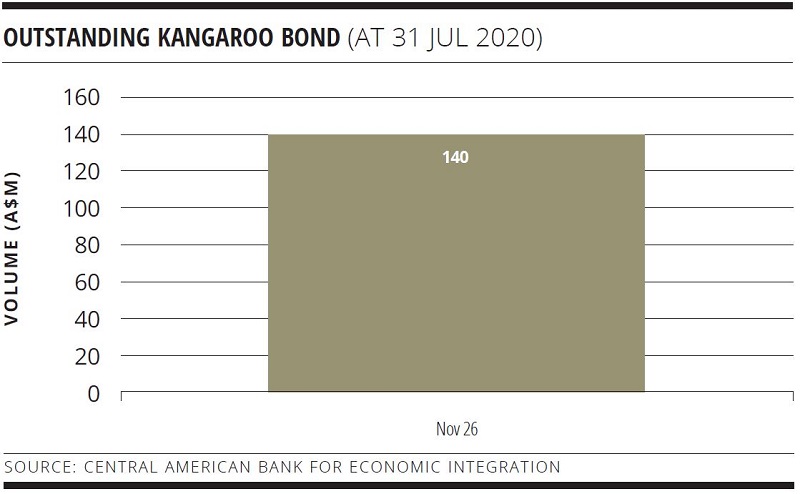
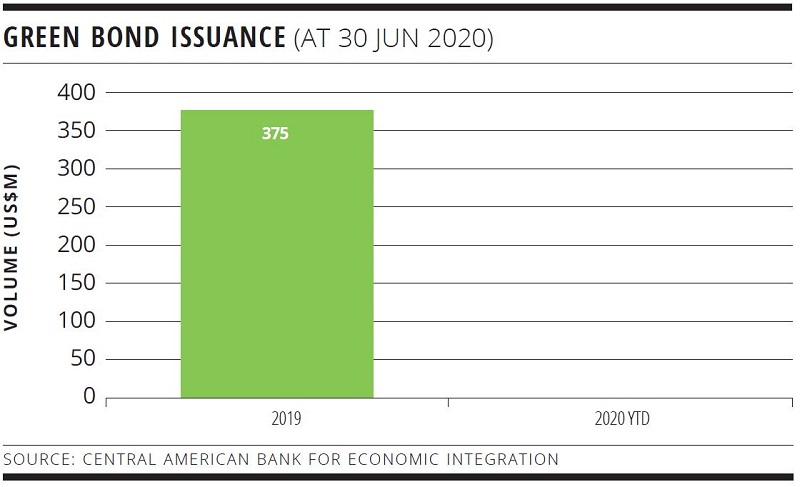
Sustainable funding strategy
In Q4 2019, CABEI issued its first global green bond, which is in line with the bank’s zero carbon emissions pledge and its accreditations with global funds such as the Green Climate Fund and the Adaptation Fund. It is expected that the funds will further strengthen CABEI’s impact on the Central American region’s resilience to climate change.
In this regard, during 2015-18 CABEI approved financing for US$2.8 billion in climate-change initiatives, which represents 35% of the bank’s total loan approvals for the period and considers the channelling of approximately US$847 million in external funding from other development partners.
FOR FURTHER INFORMATION PLEASE CONTACT:
This email address is being protected from spambots. You need JavaScript enabled to view it.
www.bcie.org/en/investor-relations
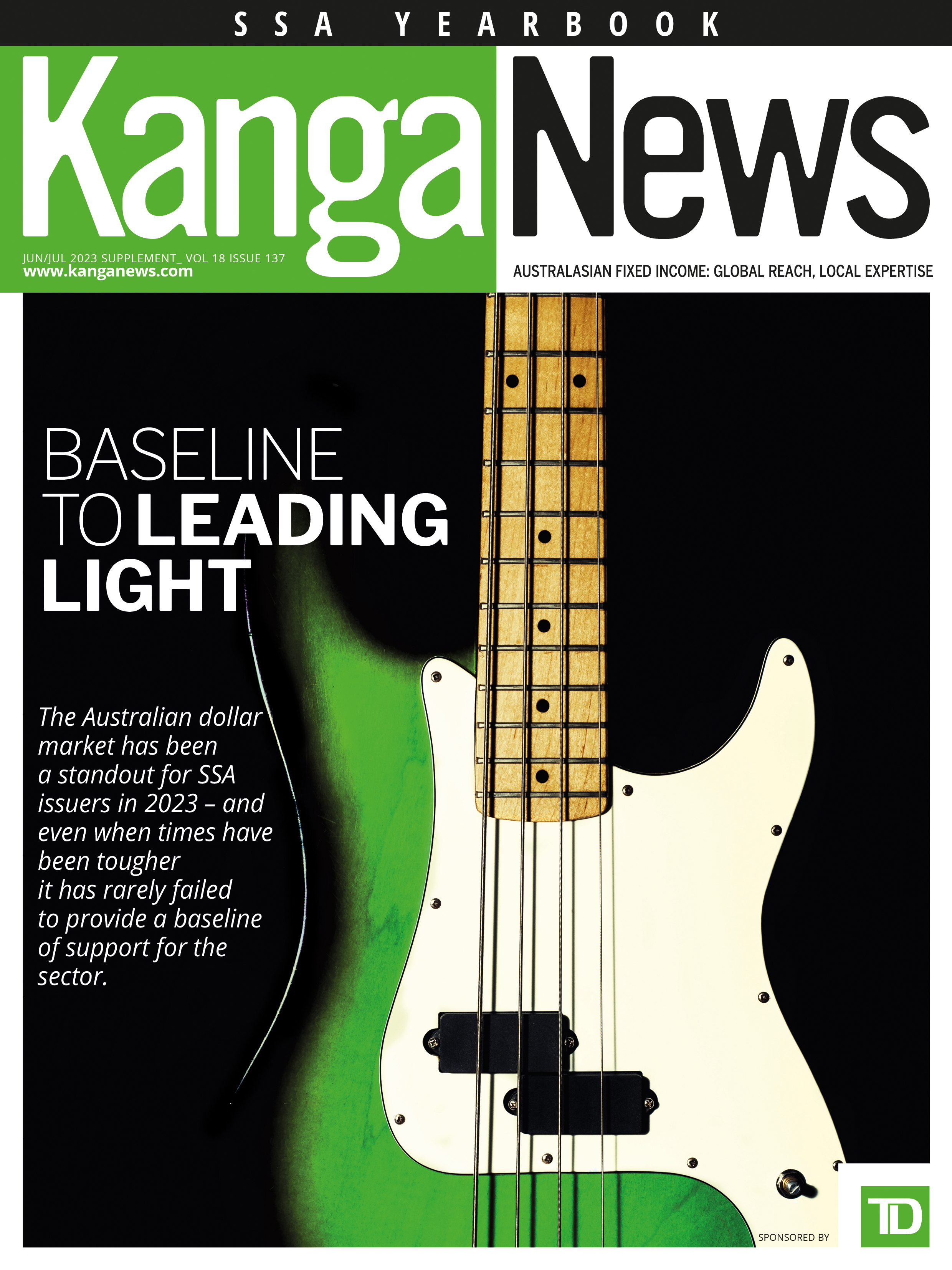
SSA Yearbook 2023
The annual guide to the world's most significant supranational, sovereign and agency sector issuers.








